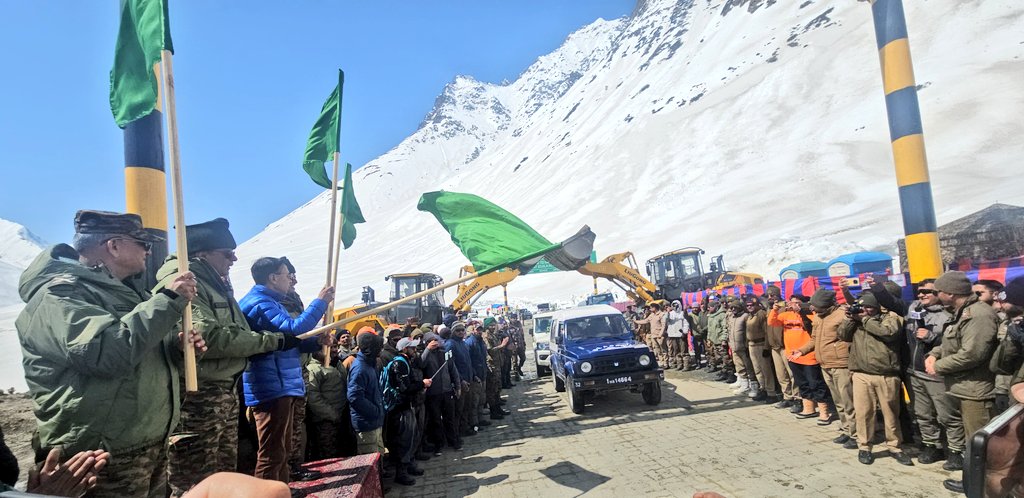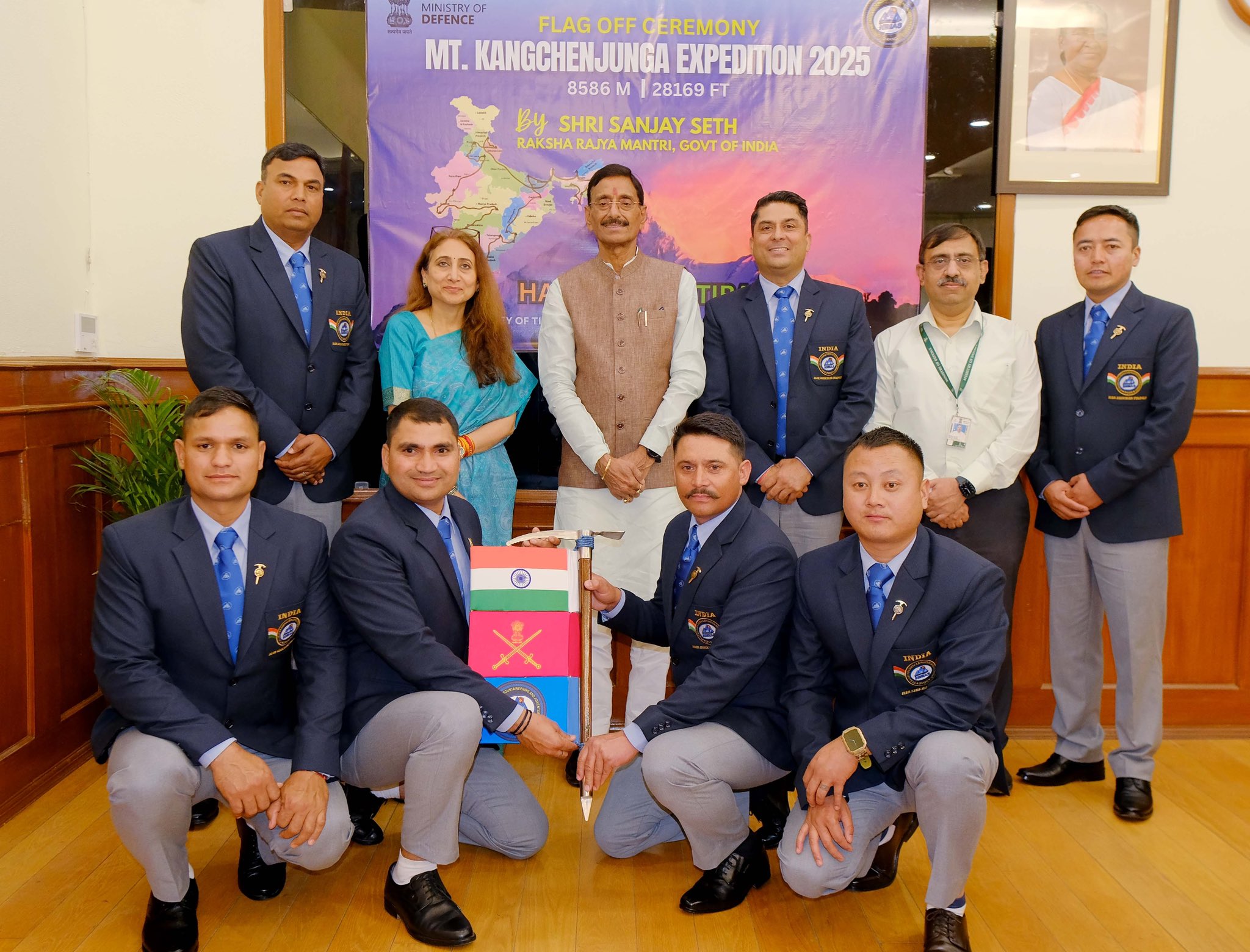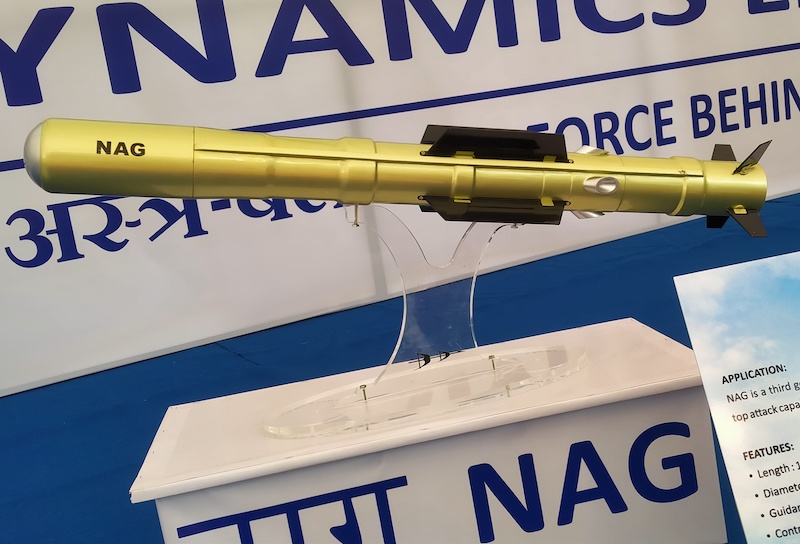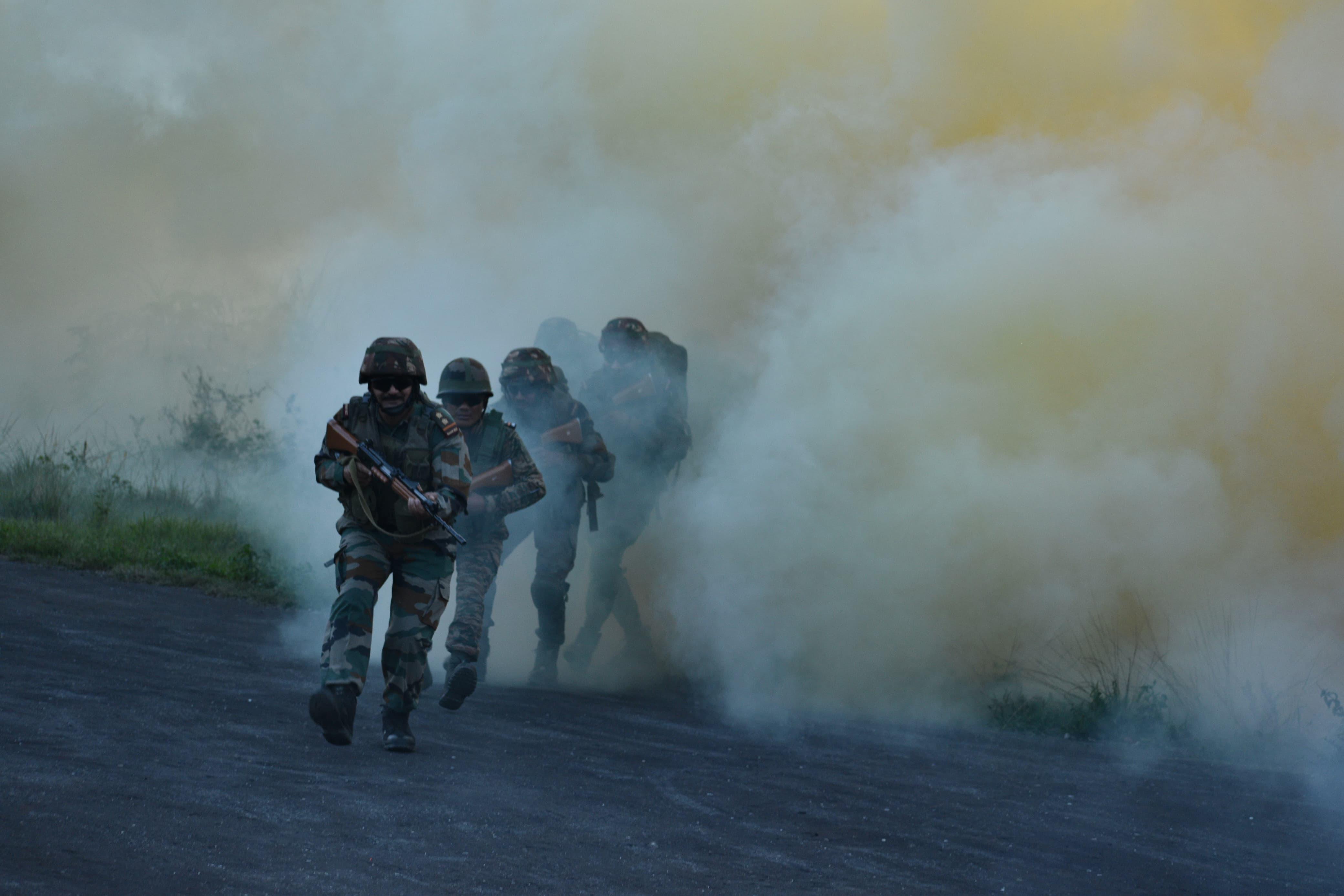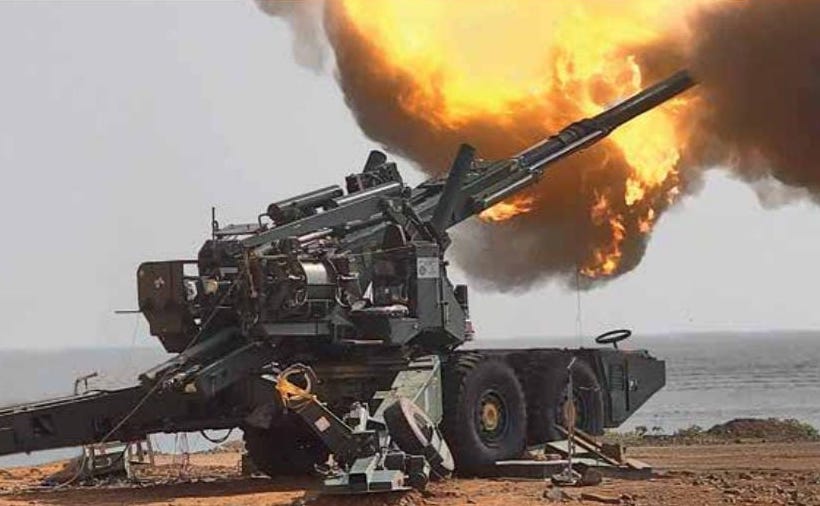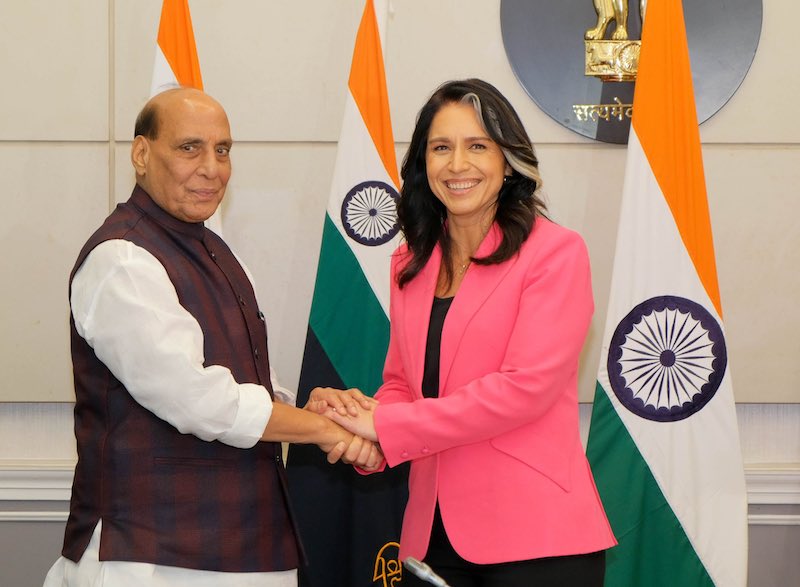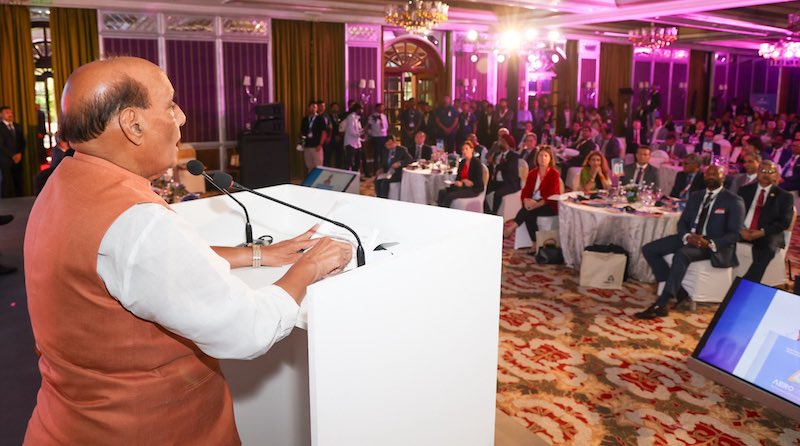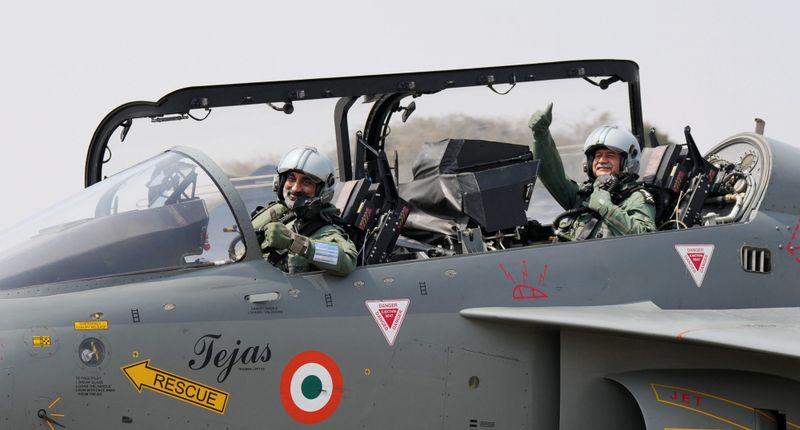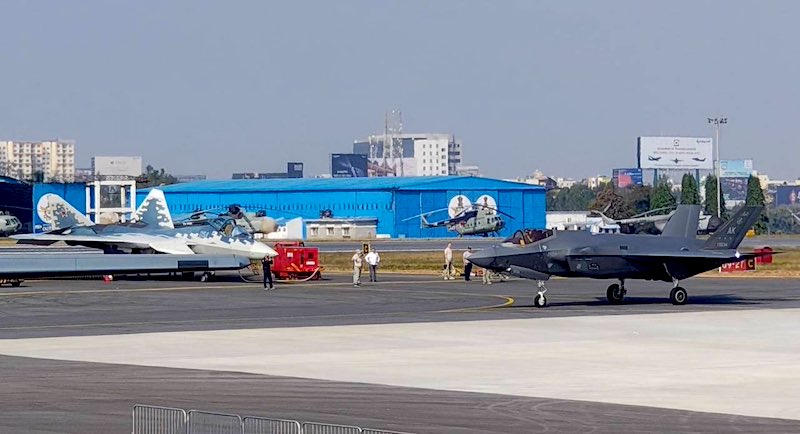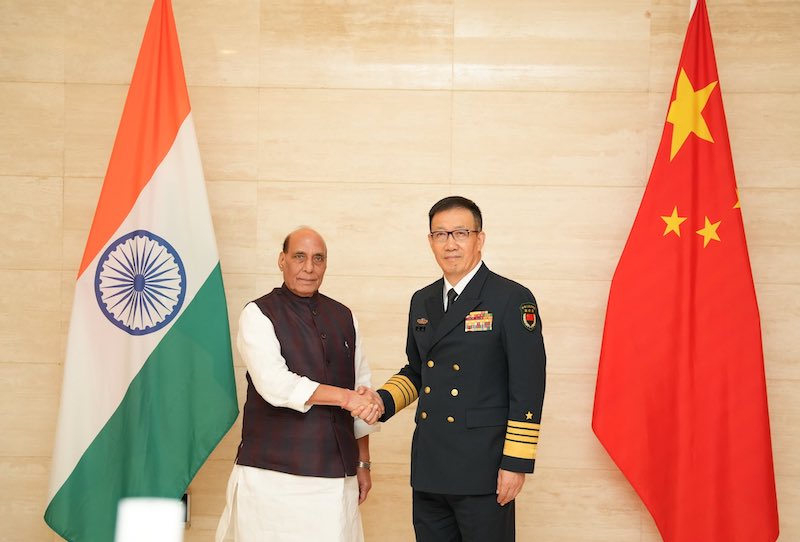 Rajnath Singh (L) wih Admiral Dong Jun in Vientiane, Laos. (Photo: X/@rajnathsingh)
Rajnath Singh (L) wih Admiral Dong Jun in Vientiane, Laos. (Photo: X/@rajnathsingh)
New Delhi: The defence minister, Rajnath Singh, engaged with his Chinese counterpart, Admiral Dong Jun, during the 11th Asean Defence Ministers’ Meeting Plus (ADMM-Plus) in Vientiane, Laos, on Wednesday. The meeting follows recent troop disengagements at two friction points along the line of actual control (LAC) in eastern Ladakh, potentially signalling a thaw in bilateral relations.
Just weeks earlier, Indian and Chinese troops completed a disengagement exercise in the Demchok and Depsang areas of eastern Ladakh, following extensive negotiations to resolve border tensions. Consequently, both nations restarted patrolling activities after a nearly four-and-a-half-year hiatus.
During their discussions, India underscored the significance of peaceful resolution mechanisms and regional stability, expressing its strategic intent to mitigate border tensions. Conversely, China stressed the criticality of sustained dialogue to avert future confrontations.
The conversations centred on fostering cooperation and charting a roadmap for mutual trust. Singh emphasized prioritizing cooperative engagement over conflict, asserting that harmonious India-China relations would positively influence global peace and prosperity. He advocated learning from previous incidents, particularly the Galwan valley clash, and implementing measures that would prevent the recurrence of such incidents.
Beyond military cooperation, the ministers deliberated on broader bilateral ties. They concurred on maintaining robust communication channels to ensure border stability. This approach aligns with recent diplomatic interactions, including the meeting between the foreign minister, S Jaishankar, and Wang Yi, his Chinese counterpart, at the G20 Summit in Rio de Janeiro, as India Sentinels reported.
After the icebreaking bilateral meeting between the prime minister, Narendra Modi, and the Chinese president, Xi Jinping, on the sidelines of the 16th BRICS Summit in Kazan, Russia, the Jaishankar-Wang and Singh-Dong meetings have attracted significant attention. Experts and observers believe that the thawing relations between these nuclear-armed nations could substantially reshape geopolitics in the Indo-Pacific region. Strategic analysts perceive the dialogue as a constructive step, contingent upon consistent implementation of disengagement agreements and reciprocal trust-building initiatives.
The ADMM-Plus forum, comprising defence ministers from 10 countries from Association of Southeast Asian Nations (Asean) and eight dialogue partners – India, China, Australia, Japan, New Zealand, South Korea, Russia, and the United States – offered a neutral platform for regional security deliberations.
This multilateral setting presents an invaluable opportunity for collaborative discussions on regional security challenges.

